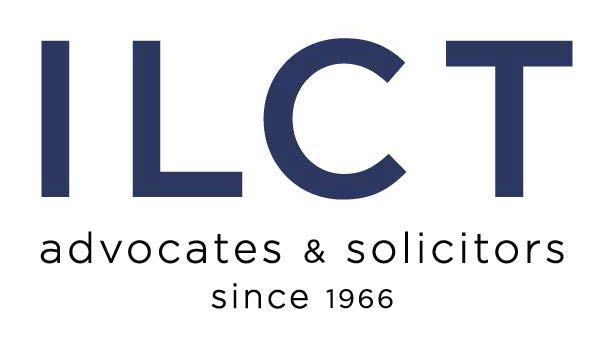New Thai Welfare Fund Regulations : Key Obligations for Employers
Background and Legal Framework
Since the promulgation and enactment of the Labor Protection Act in 1998, employees and employers alike have been anticipating the implementation of the regulations concerning the establishment of the Employee Welfare Fund, provided under Chapter 13 of the Labor Protection Act and under the purview of the Department of Labor Protection and Welfare.
In November 2024, the Employee Welfare Fund regulations were published in the Royal Gazette, providing a legal framework for the long-awaited Employee Welfare Fund and imposing a legal requirement for employers meeting the specific criteria to make contributions to the Employee Welfare Fund, originally scheduled to take effect on 1 October 2025. However, pursuant to the Ministerial Regulation on Employee Welfare Fund Contributions (No. 2) B.E. 2568 (2025), the effective date for mandatory contributions has been postponed. In consideration of the prevailing economic conditions, the commencement date has been deferred by one year, now set to begin on 1 October 2026. The implementation of the Employee Welfare Fund, once in effect, will provide protection for employees in cases of death, termination of employment, retirement, and other specific scenarios provided by the newly published Ministerial Regulations. This article aims to summarize the key points of the regulations, with particular emphasis on the duties of employers who will be obligated to comply once the enforcement date takes effect.
Scope of Application and Employer Obligations
As the Ministerial Regulations on Employee Welfare Fund Contributions, B.E. 2567 (2024) were promulgated under the power of Section 130 of the Labor Protection Act, the businesses required to enroll their employees in accordance with Section 130 are as follows:
- Businesses with more than ten employees
- Businesses with fewer than ten employees, as prescribed by Royal Decree
The above shall not apply to employers who have already established a provident fund pursuant to the Provident Fund Act, provided that such fund is duly registered and fully compliant with the requirements prescribed under the Act, including minimum contribution rates, governance obligations, and reporting standards. Employers whose internal funds do not meet these criteria would not be exempt from contributing to the Employee Welfare Fund. Although the law appears to require that employers subscribe to this social welfare fund for those employees who are not members of the company provident fund (whether by choice or otherwise), a labor official at a seminar stated that the Department of Labor Protection and Welfare would issue further clarification on this point. It also remains to be clarified whether this welfare scheme applies to registered migrant workers, who represent a significant portion of the workforce in Thailand and are typically covered under national social protection systems.
Contribution Rates and Payment Mechanism
The Ministerial Regulations on Employee Welfare Fund Contributions B.E. 2567 (2024) also include provisions governing the rates of Contributions and Supplementary Contributions that both employers and employees who are members of the Employee Welfare Fund must contribute. Under the original Ministerial Regulations, the contribution rates were fixed at a monthly rate of 0.25% of the individual employee’s salary for both employers and employees, increasing to 0.5% thereafter. However, after the Ministerial Regulations on Employee Welfare Fund Contributions (No.2) B.E. 2568 (2025) were enacted to amend the commencement date of the collection. Pursuant to these amendments, the initial five-year will start from 1 October 2026 until 30 September 2031, during which the contribution rate will remain at 0.25%, consistent with the first announcement. From 1 October 2031 onwards, the rate will increase to 0.5%. The regulations further established guidelines for contributions. Of particular importance is the requirement that employees’ contributions shall be deducted before salary payments and deposited directly into the Employee Welfare Fund through the appropriate governmental channel.
Sanctions for Non-Compliance and Recommended Employer Action
Employers subject to this legal requirement should consider and review the regulations carefully as any failure to contribute will result in a penalty of 5% on the contribution amount, the supplementary contributions and/or the deficient amount, not including other penalty related to the filing of the relevant documentation. Additionally, the labor inspector may also issue an order to rectify any non-compliance with the law which, if not cured, may result in criminal prosecution of the employer or the directors, in the case the employer is a juristic person. In response to the new enactment of the Ministerial Regulations, employers should check and review their work rules to ensure that their provident funds have already been implemented in their workplaces; If not, the employers must comply with the new Employee Welfare Fund regulations once they take effect on 1 October 2026. This extension provides employers with sufficient time to prepare and make the necessary adjustments to their internal policies in advance of the regulations coming into effect.
About ILCT Ltd.
ILCT Ltd. is a full-service law firm based in Bangkok, Thailand, with nearly 60 years’ experience in providing comprehensive legal solutions to domestic and international clients. Our firm offers expertise across a wide spectrum of legal fields, including corporate and commercial law, mergers and acquisitions, intellectual property, dispute resolution, taxation, regulatory compliance, and foreign investment. Beyond these core areas, ILCT Ltd. delivers tailored legal services to meet the diverse needs of businesses operating in various industries, ensuring strategic, efficient, and compliant solutions in an ever-evolving legal landscape. Our multidisciplinary approach, combined with in-depth knowledge of Thai and international law, enables us to assist clients in navigating complex legal and business challenges with confidence and clarity.
For more information, please contact us at: law@ilct.co.th
New Thai Welfare Fund Regulations : Key Obligations for Employers [please download]
